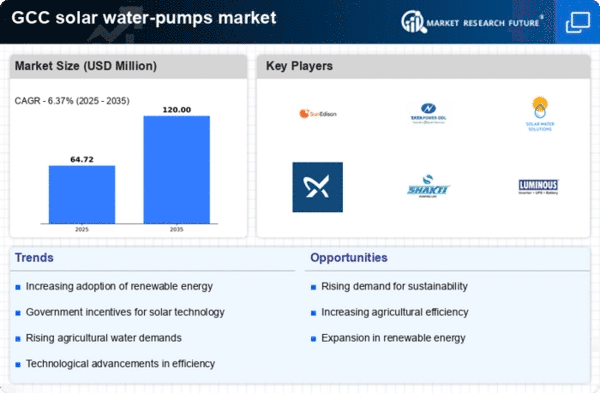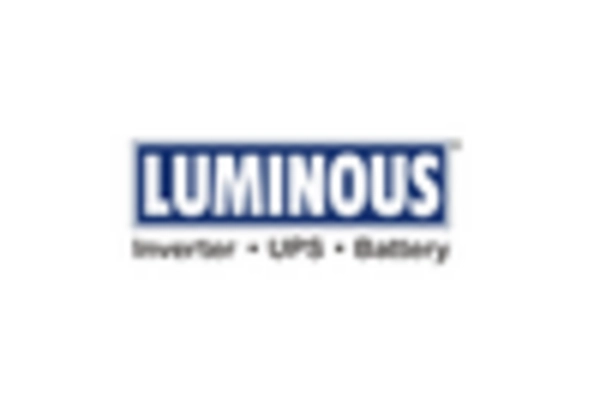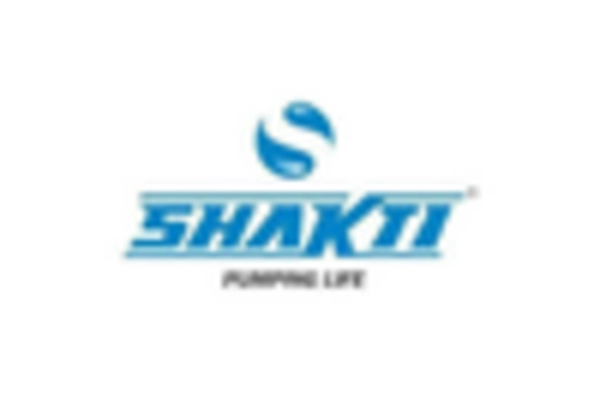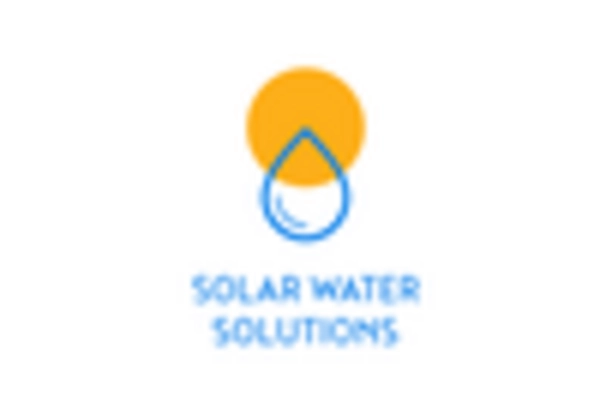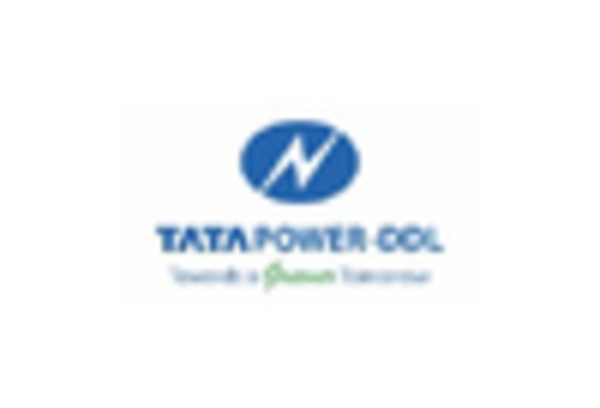Increasing Energy Costs
The rising costs of conventional energy sources in the GCC region are driving the adoption of solar water-pumps market. As fossil fuel prices fluctuate, consumers and businesses are seeking alternative energy solutions to mitigate expenses. The solar water-pumps market offers a viable option, as it utilizes renewable energy, thereby reducing reliance on costly grid electricity. In recent years, the average cost of electricity in the GCC has increased by approximately 15%, prompting a shift towards more sustainable energy solutions. This trend is likely to continue, as energy prices are expected to rise further, making solar water-pumps an attractive investment for both agricultural and residential applications. The economic benefits associated with solar water-pumps market adoption are becoming increasingly apparent, as users can achieve significant savings on energy bills over time.
Technological Innovations
Technological innovations are significantly enhancing the efficiency and effectiveness of the solar water-pumps market. Advances in solar panel technology, battery storage, and pump efficiency are making solar water-pumps more accessible and reliable for users in the GCC. For example, the introduction of smart irrigation systems that integrate solar water-pumps with IoT technology allows for real-time monitoring and management of water usage. This not only optimizes water consumption but also maximizes energy efficiency. As these technologies continue to evolve, the solar water-pumps market is likely to attract a broader customer base, including both agricultural and residential sectors. The potential for increased efficiency and reduced operational costs may drive market growth by an estimated 25% in the next few years, as users seek to leverage these advancements.
Water Scarcity Challenges
Water scarcity is a pressing issue in the GCC, where arid climates and limited freshwater resources pose significant challenges. The solar water-pumps market is emerging as a critical solution to address these challenges. With the region's reliance on desalination and groundwater extraction, the need for efficient water management systems is paramount. Solar water-pumps provide an innovative approach to irrigation and water supply, enabling users to harness solar energy for pumping water from underground sources. This technology not only conserves water but also reduces the environmental impact associated with traditional pumping methods. As the GCC faces increasing pressure to manage its water resources sustainably, the solar water-pumps market is likely to experience substantial growth, with projections indicating a potential market expansion of over 20% in the coming years.
Rising Agricultural Demand
The growing demand for agricultural products in the GCC is propelling the solar water-pumps market forward. As the region seeks to enhance food security and reduce dependence on imports, there is an increasing emphasis on sustainable agricultural practices. Solar water-pumps provide an efficient means of irrigation, enabling farmers to utilize renewable energy for their water needs. This shift towards sustainable agriculture is not only beneficial for the environment but also economically advantageous for farmers, as it reduces operational costs associated with traditional irrigation methods. The solar water-pumps market is expected to see a surge in demand, with projections indicating a growth rate of around 18% over the next few years, as more farmers adopt solar technology to meet the rising agricultural demands.
Government Support and Policies
Government support and favorable policies are playing a pivotal role in the growth of the solar water-pumps market in the GCC. Various initiatives aimed at promoting renewable energy adoption have been introduced, including subsidies and tax incentives for solar technology installations. For instance, several GCC countries have set ambitious targets for renewable energy generation, with plans to increase the share of solar energy in their energy mix. This supportive regulatory environment encourages investments in solar water-pumps, as stakeholders recognize the long-term benefits of transitioning to sustainable energy sources. The solar water-pumps market is expected to benefit from these policies, with an anticipated increase in installations by approximately 30% over the next five years, as more consumers and businesses seek to capitalize on government incentives.


